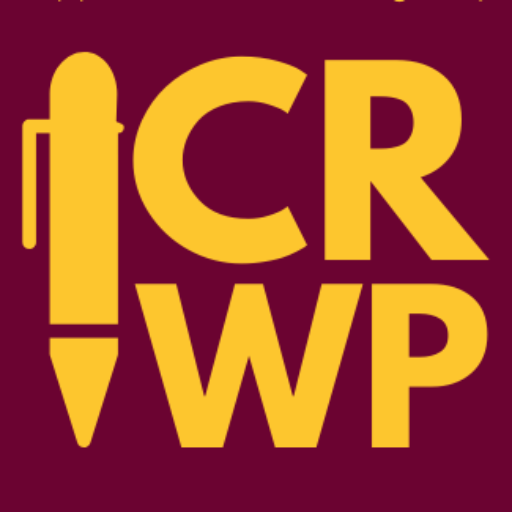Congratulations to Troy Hicks for being CRWP’s November Feature Spotlight. Read about Troy below.
Fortunately, I can say that I have been part of the Chippewa River Writing Project since it was just a vision. As I was finishing my doctoral work and had already established relationships with others in the National Writing Project, the idea of bringing an NWP site to CMU was part of that conversation when I was hired. To that end, my most memorable moment with CRWP came when I got the call, on my birthday, that we would, indeed, become a site, a reflection I shared in a post for the NWP Archives (http://our.nwp.org/november-
Working with students and helping them build their arguments, through both words, sentences, and paragraphs as well as through images, sounds, links, and other multimodal elements. As writers work, they discover what it is that they really want to say, and then they begin again. Mentoring students through that process is both a challenge and a joy, making those moments in writing conferences and when offering feedback some of the most powerful experiences for me as a teacher of writing.
In the past year, I have been pleased to co-author two books with CRWP colleagues. In February, Jeremy Hyler, Wiline Pangle, and I celebrated the release of Ask, Explore, Write!: An Inquiry-Driven Approach to Science and Literacy Learning (https://www.taylorfrancis.
At the moment, my favorite author is educational technologist Neil Selwyn. His books (such as Distrusting Educational Technology <https://www.routledge.com/
Focus your feedback. It is in our nature to want to give students lots of feedback, as we are likely a bit geeky in that way, craving tons of response to our own writing. However, too much feedback can be overwhelming for writers, and a drain on you. Provide timely, specific, goal-oriented feedback at various stages of the writing process, and model the kinds of writerly moves that you would expect students to emulate. In doing so, you are helping them “feed forward,” putting those ideas into practice.


Leave a Reply
You must be logged in to post a comment.